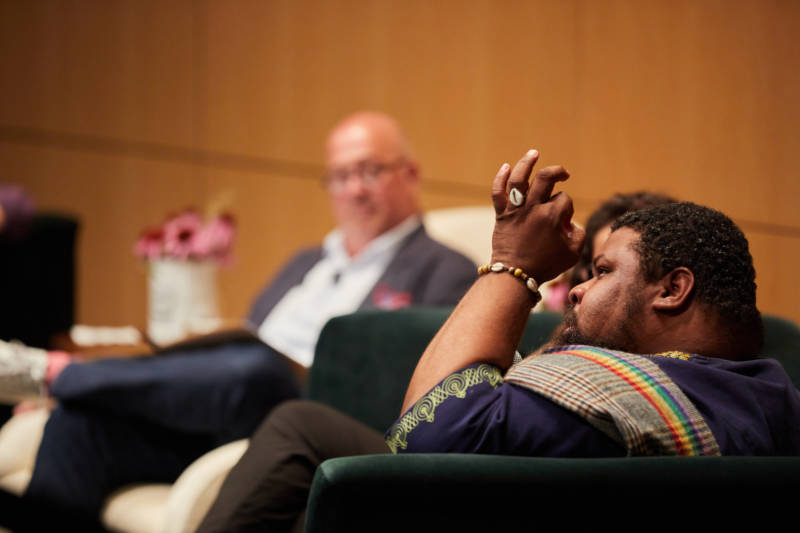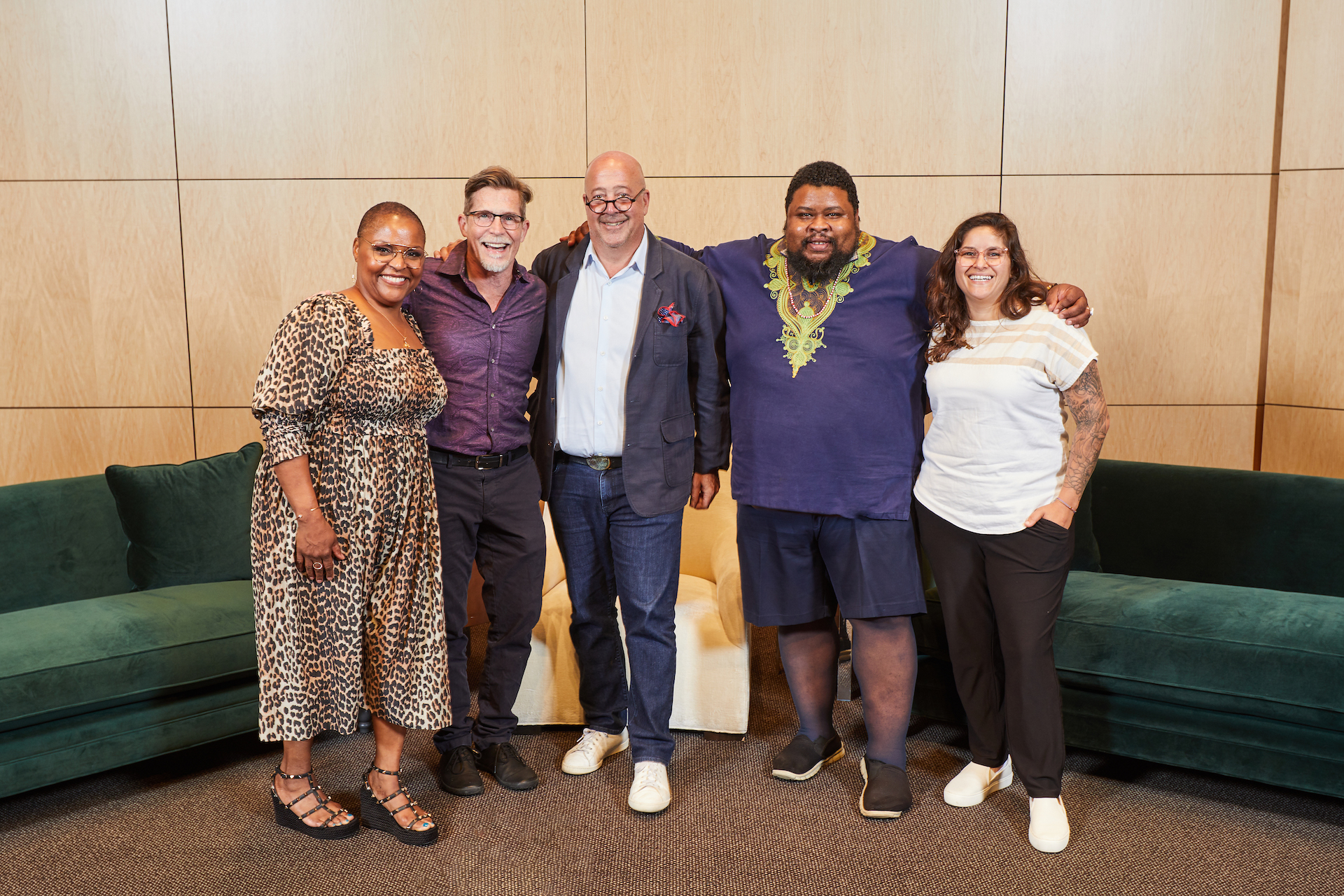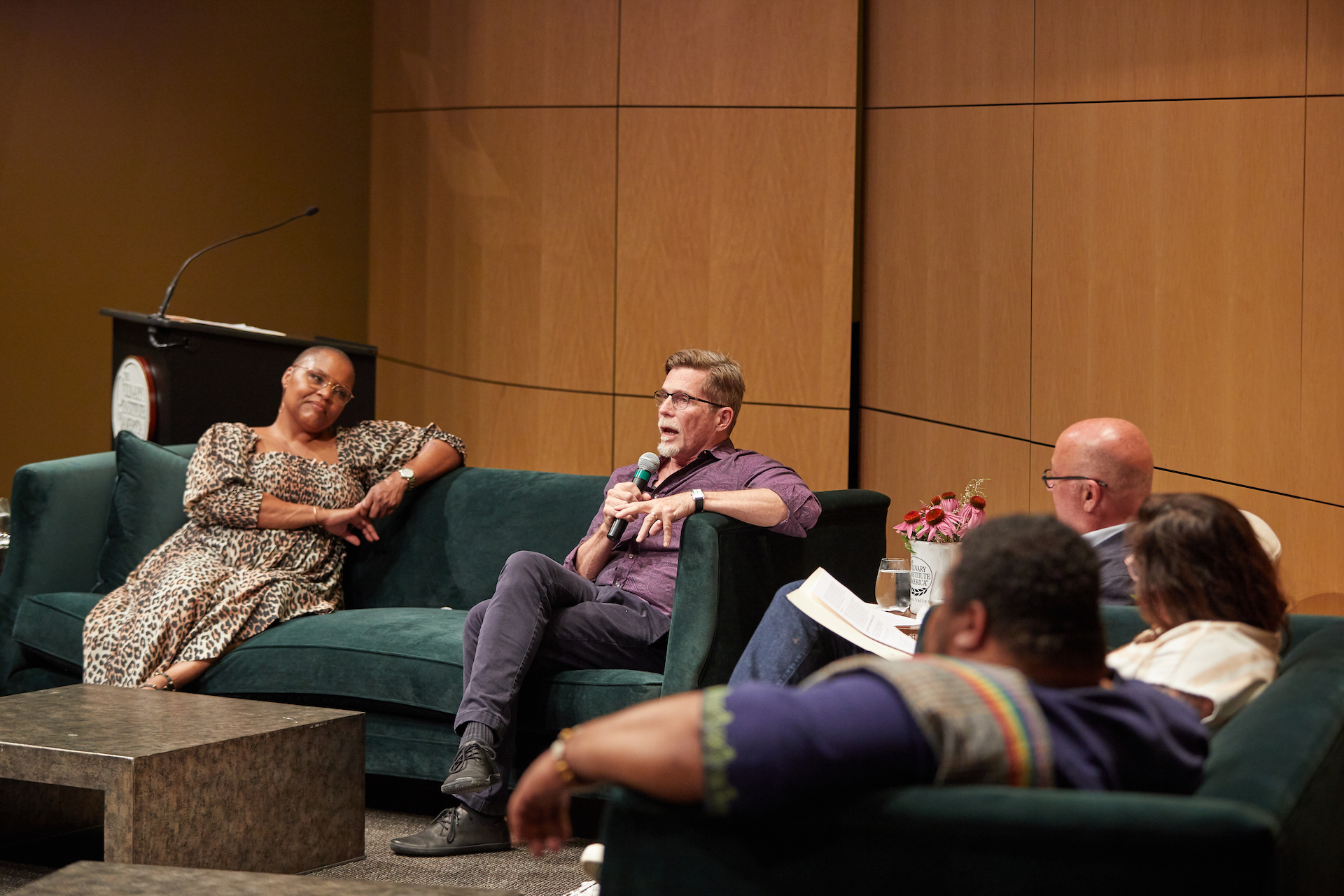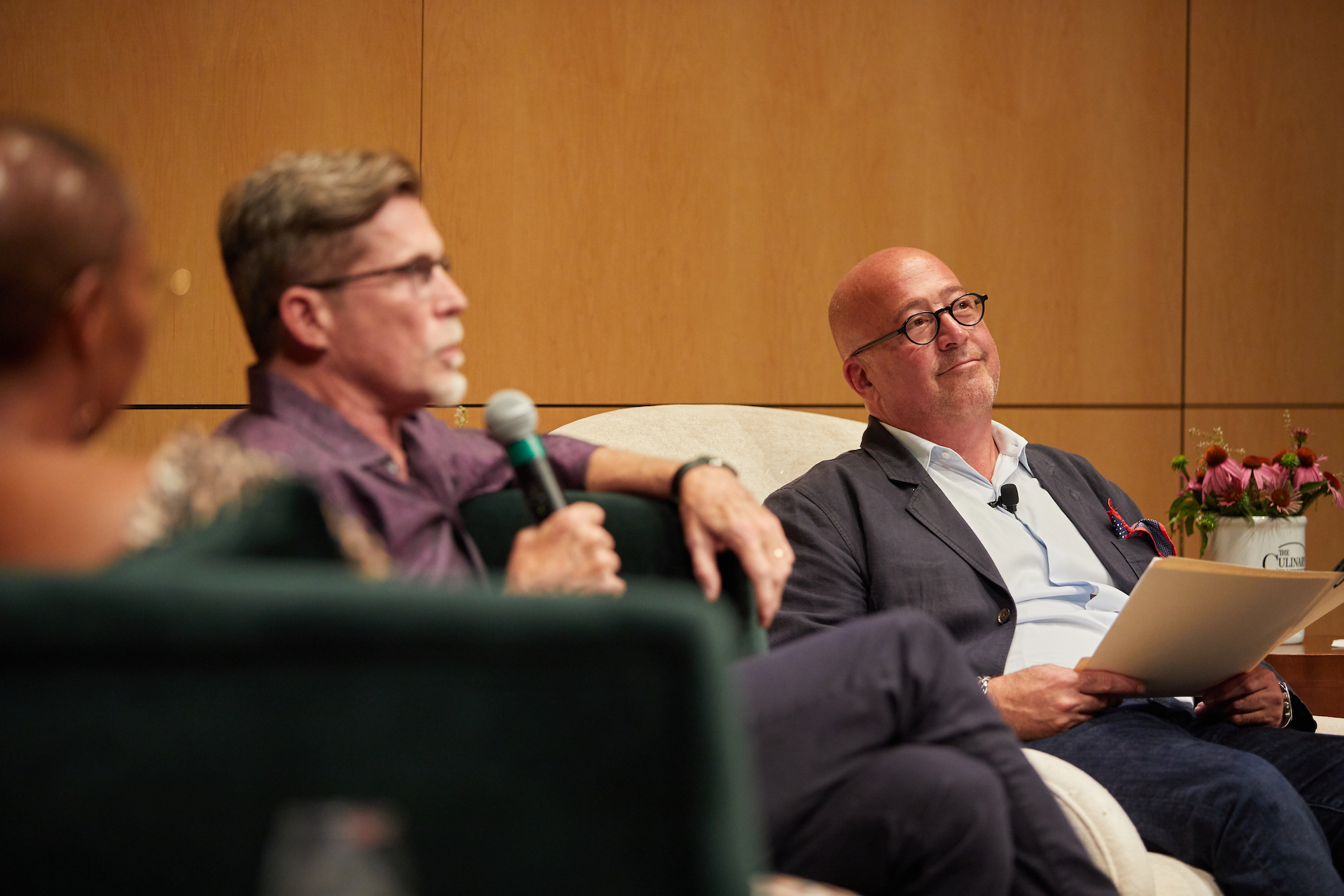Andrew Zimmern, Tanya Holland and More Gather to Discuss Change in the Culinary Industry

“Food is power.”
This was how Maryam Ahmed, the Culinary Institute of America’s Director of Public Programs, opened “Conversations at Copia,” the live talk series hosted by James Beard Award winner Andrew Zimmern.
Held at downtown Napa’s Culinary Institute of America (CIA) at Copia, September 7th’s discussion entitled “Culture & Cuisine” included panelists Rick Bayless of Frontera Grill, Brown Sugar Kitchen’s Tayna Holland, La Cocina's program manager Emiliana Puyana, and “The Cooking Gene” author Michael Twitty. Over roughly 90 minutes, each esteemed food expert attempted to answer the question “What does it mean to be authentic and who gets to cook what?”
About halfway through, Zimmern repeated those opening words.
“Food is power. And history tells us that those who have that power want to keep it.”

White males, no surprise there, have predominantly held that power—specifically the white males cooking French and Italian cuisine. The cuisine that’s the most revered, the “most respected, elevated of cuisines,” as Holland put it. “You’re thought of as an expert if you can cook those cuisines.”
But it doesn’t take much to look back at America’s culinary history and see that people of color were predominantly the ones in the kitchen. If one looked even a bit further, those people were revered for their unique cooking styles just as much as the white men cooking French and Italian are today.
“People, going back hundreds of years, have always created a mythology around who is cooking our food,” said Zimmern. “But for the vast majority of restaurants in this nation, the food we consume is done by people of color. A lot of that is based on maintaining the current power structure.”
The chefs on CIA’s stage built their culinary careers by cooking a cuisine that doesn’t tell the same story as everyone else. Their journey hasn’t been pretty; there’s been no “baton being passed,” as Holland put it, to lead them to culinary glory.

“I had not seen a lot of people who looked like me cook the food I wanted, where the food, room, and service was elevated,” said Holland.
Holland has elevated the cuisine she knows and loves—specifically modern soul—but it hasn’t been easy. She made a home for her restaurant, Brown Sugar Kitchen, in Oakland in part because it was the only neighborhood where landlords would rent to her.
It didn’t matter that she had 20 years of experience, she explained to the packed crowd; it only seemed to matter that she didn’t have restaurant experience—or that’s what she was told. Today, Holland still isn’t where she wants to be but she strives to get there so that the next generation can look to her for guidance.
Like Holland, Twitty has an uphill battle ahead to reach, what he says, his goal to become the “first black colonial antebellum masterchef since slavery.” Why? A black child born in America won’t have “the same resources passed down to [them as white people]. And even if you do come from money, your dollar is not worth that of a white man.”
In “The (Mis)education of America’s culinary schools,” writer Korsha Wilson asks why culinary schools like the CIA aren’t spending more time diving into regional cuisines like they do the traditional ones. “If you think about what it takes to make a mole sauce, or what it takes to make gumbo, it’s still the same level of time commitment and technique and expertise [as French and Italian cuisine], so why isn’t it valued in the same way?” asked Holland.
Outside of the kitchen, equilibrium in the food world can only happen when our society stops assigning a certain price tag or level of service with only one type of cuisine but not another.
“Food is unfairly priced in America,” adds Zimmern. “and it’s designed to maintain an underclass.”
Elevated cuisine can’t just have a decorated or celebrated chef cooking it; the diner also needs to accept the lengthy food journey attached with each pretty plate. “For a strawberry to end up on your plate, it’s passed through many hands,” Puyana reminded everyone. “We need to accept the fact that food needs to cost more. And when we’re paying more for a pretty plate, we aren’t just paying for the design but paying for the labor that brought it to you.”

Food is powerful, yes. But it’s only as powerful as the diners, cooking community, food media, and chefs deems worthy. Part of this series isn’t just about spotlighting the work needed to find harmony within the kitchen, but also educating guests about the inequality in today’s food history.
Once diners accept that all cuisine is worthy of elevating, food equilibrium will come.
---
The next “Conversations at Copia” will be held on October 26 featuring Daniel Giusti of Brigaid, Matt Jozwiak from Rethink Food NYC, and Michel Nischan from Wholesome Wave. The final event in the series will be on December 7 around the topic “Setting the Equity Table.”